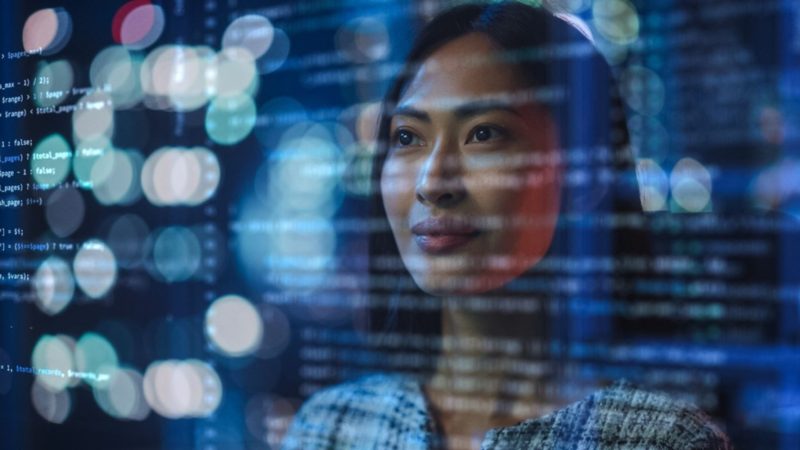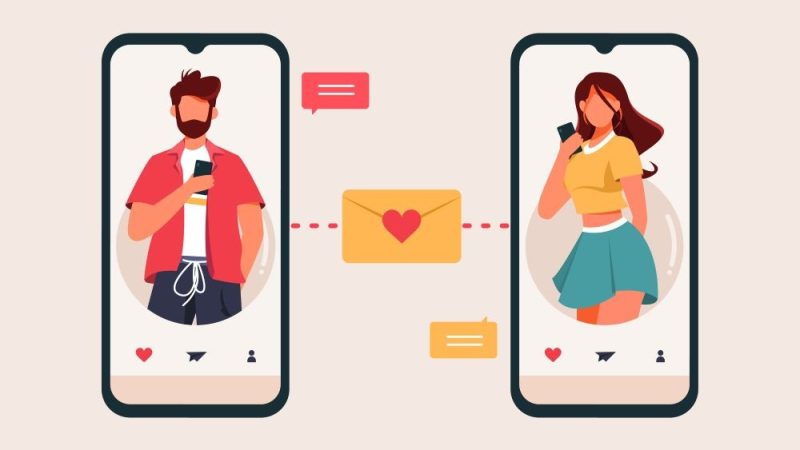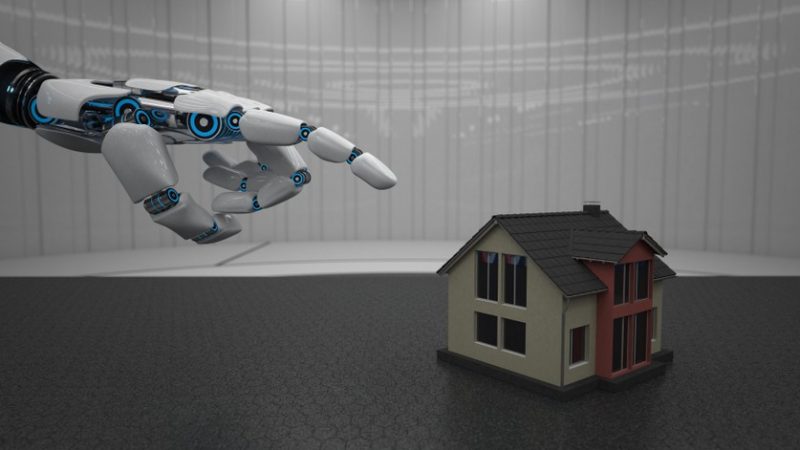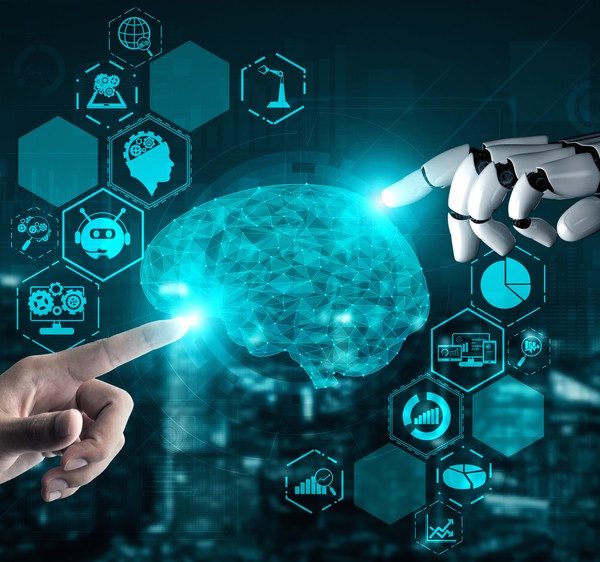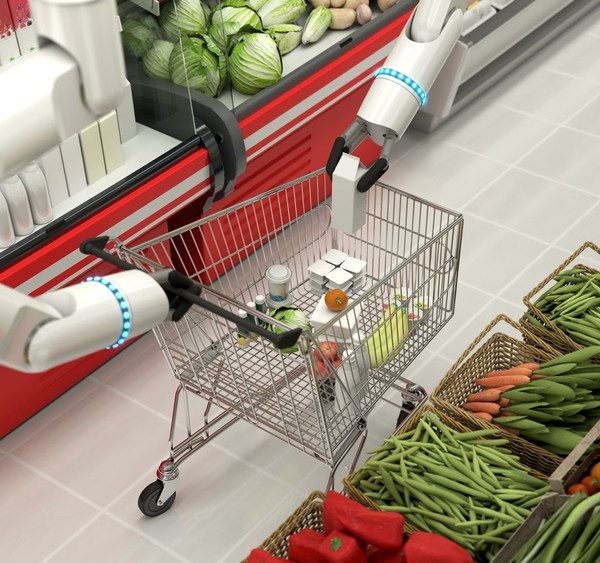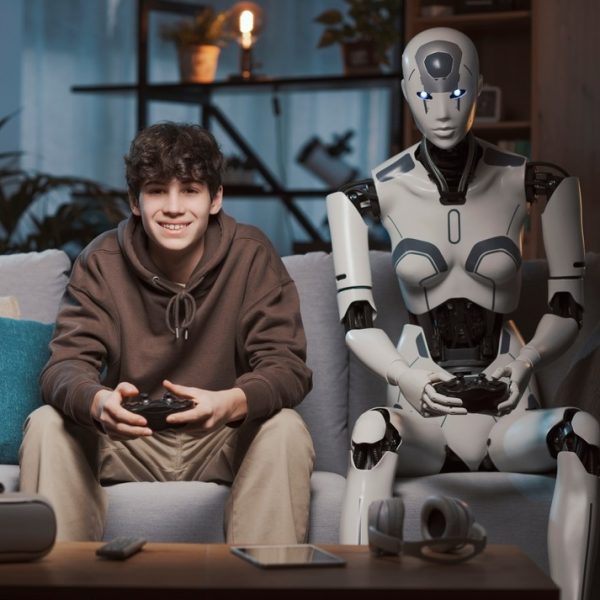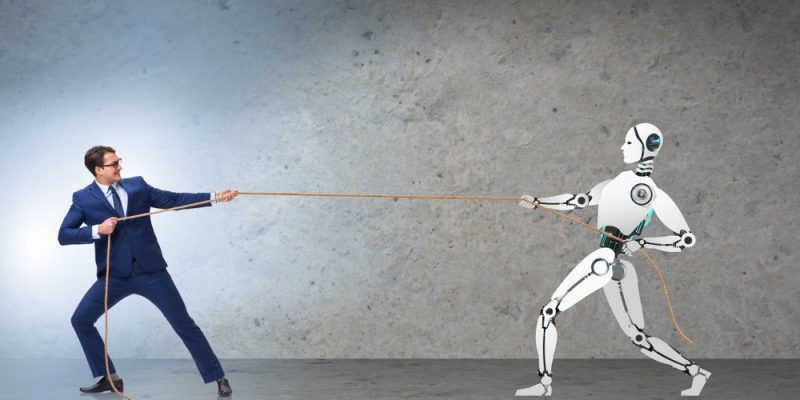
Can AI Replace Humans?
Artificial Intelligence (AI) is a rapidly advancing technology that is changing the way we work and live. With the increasing use of AI, there is a growing concern about whether AI will eventually replace humans altogether. In this article, we will explore the question, can AI replace humans?
The answer is not a simple yes or no. AI has already replaced humans in some jobs, and there is a trend of businesses investing more in this area. However, it’s unlikely that AI will replace all humans permanently and create a machine-driven apocalypse. Let’s delve deeper into the capabilities and limitations of AI.
AI Can’t Creatively Think: Understanding the Limits of AI Technology
Artificial Intelligence (AI) has been transforming industries, but there are still limits to what it can do. One of those limits is that AI can’t creatively think. Below we will explore this limitation and how it affects the capabilities of AI technology.
Understanding AI’s Programming Limitations
AI technology is programmed with specific instructions that it can follow. Everything it does, whether it’s operating a robot, chatbot, or navigating the internet, is pre-programmed. As a result, AI can’t think for itself outside of the code it’s been given, and it doesn’t have a conscious.
The Limitations of AI Creativity
This programming limitation is a real problem for AI’s ability to be creative. It can’t create a plan or deviate from the set instructions it has been given. This means it cannot be creative. While machine learning may appear creative, it is only because it can identify the best way to optimize a system or complete a task. AI technology cannot think of a situation itself, and it requires pre-programmed instructions.
The Potential for AI to Learn to Be Creative
While AI technology may not be able to think creatively now, there is a potential for it to learn how to do so in the future. The technology can be taught to be creative and think outside of the instructions it has been given. Imagine giving an AI a blank piece of paper and a pen and asking it to draw something. It wouldn’t know what to draw, and it would produce nothing. However, if you provide it with a drawing to copy, it can do so with greater precision than a human due to its precise movements.
Using Machine Learning to Enhance Creativity
Machine learning can be used to help AI technology become even more creative. By analyzing similarities with other relevant pieces, the technology can learn how to create better designs and come up with new ideas. However, AI technology still has its limitations. It cannot read a human’s thoughts or emotions by analyzing body language or speech. Emotional intelligence is something that humans naturally possess, and AI technology cannot replicate it.
AI Revolutionizes Efficiency in the Workplace
Artificial intelligence (AI) has revolutionized the way we work, reducing repetitive tasks and increasing productivity in the workplace. With automated account management, data-filled CRM, resume filtering, and even recommendations for eating out, AI has made it possible for businesses to streamline their operations and provide a better customer experience. In this article, we will explore how AI increases efficiency in the workplace and what it means for businesses and consumers alike.
AI Analysis: A Game Changer
AI has proven to be a game changer in analyzing sales calls. According to a report by thinkgrowth.org, AI can analyze sales calls faster than any human, taking an estimated nine years of nonstop sales call analysis for a person to compete. This level of analysis provides insights that would otherwise be impossible to obtain, allowing businesses to optimize their sales strategies and provide better customer service.
Better Customer Experience
By adding intelligence to existing products or services, AI has allowed for a better customer experience. For example, Apple introduced Siri to its upgraded models, a feature that is now standard. Businesses use AI to recommend products that customers might like, improving the efficiency of their shopping experience and increasing the likelihood of becoming a customer. AI has also made it easier for businesses to provide personalized customer service, resulting in greater customer satisfaction and loyalty.
Read Also: Is Siri AI?
Improving Efficiency
AI seeks to improve efficiency through algorithms that make processes faster and more accurate. As a result, businesses can sell products more efficiently and increase revenue. While AI may not improve our personal efficiency as much, it certainly improves the efficiency of businesses, which benefits us as consumers. AI has become an essential tool for businesses looking to stay competitive in the ever-changing business landscape.
Cybersecurity and AI
AI has also made significant strides in cybersecurity, with applications and malware designed to test and identify vulnerabilities in systems. This helps businesses identify areas that need improvement and strengthen their security measures. This is a win-win situation for both businesses and consumers, as it results in better security and protection of sensitive information.
AI Drives New Business Opportunities and Job Growth
The rapid development of artificial intelligence (AI) is creating new industries, businesses, job roles, and career opportunities that were previously unheard of. Fifteen years ago, few people had ever heard of a “social media marketing manager” or even knew what social media was. Fast forward to today, and some of the world’s biggest companies, like Facebook, owe their explosive growth partly to AI.
By 2020, CNBC predicts that AI will generate 2.3 million new jobs, outnumbering the 1.8 million jobs it will replace. Meanwhile, Forbes forecasts that AI will create over 58 million new jobs by 2022. While these predictions differ significantly, it’s clear that AI is driving job growth and creating new opportunities.
However, these developments raise important questions about employment. Will there be enough people skilled in the industry and new jobs resulting from AI? Companies will have to invest heavily in upskilling their current employees, and the education system must adapt to train the next generation of workers for these emerging careers.
But with so many new companies and industries emerging from AI, we are only scratching the surface. In the next 10, 15, or 20 years, new businesses, industries, and career opportunities will continue to emerge.
As AI continues to evolve, there is growing concern about its impact on employment. Some argue that robots will replace human workers, while others see the rise of AI as an opportunity to create new, more fulfilling jobs.
Conclusion
In conclusion, AI is a powerful technology that has the potential to transform human work and life. While AI may automate certain tasks, it cannot replace the human touch. Humans possess unique abilities, such as creativity, empathy, and critical thinking, that machines cannot replicate. Therefore, it is essential to view AI as a tool to augment human work, rather than a replacement for human workers. By embracing AI and developing it ethically, we can ensure that it contributes positively to human society.





